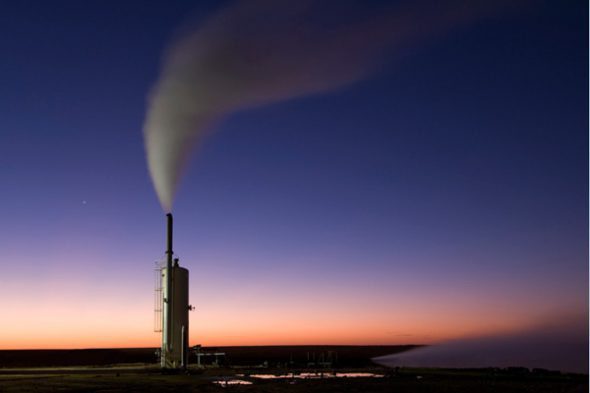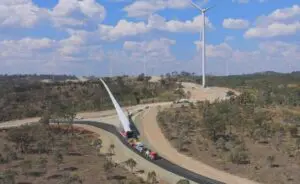Australia’s largest electricity utility Origin Energy has announced it will withdraw completely from the Innamincka geothermal joint venture, just weeks before a 1MW pilot plant – the first to feature enhanced geothermal systems technology in Australia – was due to come online.
The withdrawal was not unexpected given that Origin Energy had written down its $200 million plus investment in “hot rock” geothermal, as well at its stake in Geodynamics, and had withdrawn from funding ongoing drilling programs and the pilot plant.
The timing, however, did surprise, given that it came three months before a decision was due.
“The decision was not a surprise because (Origin Energy) chose to focus on short term project such as APLNG,” wrote Paul Jensz, analyst from Phillip Capital. ”The timing was sooner than expected as (it) could have stayed on and been diluted over time.”
 Geodynamics CEO Geoff Ward said the trial of the 1MW pilot plant for the outback village of Innamincka would begin in April. He said this followed flow tests results which had produced one of, if not the highest EGS productivity tests in the world.
Geodynamics CEO Geoff Ward said the trial of the 1MW pilot plant for the outback village of Innamincka would begin in April. He said this followed flow tests results which had produced one of, if not the highest EGS productivity tests in the world.
Ward repeated earlier comments saying that the development of EGS geothermal remained a long term challenge that required significant capital investment, and new (grid) infrastructure.
“However, we remain convinced that these resources will play a material role in Australia’s long term energy economy as a reliable supplier of large scale, continuous, predictable, controllable energy.”
Jensz said the pilot plant would be a key milestone, and could lead to the construction of a 10MW to 25MW power station. Geodynamics has received funding support for that project under the Renewable Energy Development Program, although it would need to attract new partners.
It estimates the costs of such a project at $150/MWh to $200/MWh. The long term goal of geothermal players is to bring that down to a maximum of $100/MWh
Jensz said that Origin Energy remaining stake of 19 million shares (4.6 per cent) was likely to act as an overhang on Geodynamics stock, which is already trading at lows around 10c – well short of their peaks in 2007.
Jensz said because of this, he has lowered the 12-month Price target to 50 per cent of its “highly risked” discount cash flow valuation of $0.39/share, or 18.5c/share.










